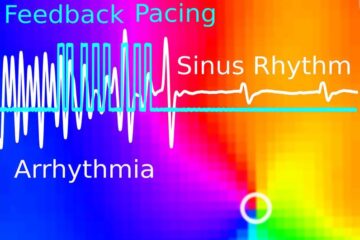Use of insecticides linked to lasting neurological problems for farmers

New research shows that farmers who used agricultural insecticides experienced increased neurological symptoms, even when they were no longer using the products. Data from18,782 North Carolina and Iowa farmers linked use of insecticides, including organophosphates and organochlorines, to reports of reoccurring headaches, fatigue, insomnia, dizziness, nausea, hand tremors, numbness and other neurological symptoms. Some of the insecticides addressed by the study are still on the market, but some, including DDT, have been banned or restricted.
These findings will be available online in April, and published in the June issue of Environmental Health Perspectives. The research is part of the ongoing Agricultural Health Study funded by the National Institute of Environmental Health Sciences and the National Cancer Institute, two of the National Institutes of Health, and the Environmental Protection Agency.
“This research is really important because it evaluated the health effects of agricultural chemicals as they were commonly used by farmers. It’s different from previous studies that focused on pesticide poisoning or high dose exposures, for example when large amounts of a chemical were accidentally spilled on the skin,” said Freya Kamel, Ph.D., a researcher for the National Institute of Environmental Health Sciences (NIEHS).
The NIEHS researchers examined questionnaires completed by farmers on lifetime exposure to herbicides, insecticides, fungicides, and fumigants, and their history of 23 neurological symptoms. Those who reported experiencing more than 10 symptoms during the year prior to completing a study questionnaire were classified as having high levels of symptoms.
Researchers found that nearly 3,000 participants had a high lifetime exposure to insecticides — that is, they used insecticides more than 500 days in their lifetime. Nearly 800 of these farmers reported more than 10 neurological symptoms compared to those using insecticides fewer than 50 days. The researchers found no significant association between neurological symptoms and other chemicals, including herbicides or fungicides, and only a weak association between fumigant exposure and neurological symptoms.
Some of the insecticides used by the licensed farmers over the past 25 years are no longer available commercially. DDT, a well known example of an organochlorine, has been banned for use in the US since 1972. Organophosphates, such as malathion, chlorypyrifos, and diazinon, have been banned or restricted for home and garden use in the US. However, some of the pesticides examined, including carbaryl and some pyrethroids, are available to home gardeners, although in different formulations and in lower concentrations, which may make them less hazardous.
“Because the participants in this study are telling us they have never been previously diagnosed with pesticide poisoning or medically treated for any exposure to any pesticide, we are led to conclude that their symptoms are related to moderate lifetime exposure,” said Dr. Kamel.
“Most studies of this issue have sample sizes ranging from 50 to 100 participants, making it hard to understand the detailed relationship between exposure and health effects. The large size of this study gives it great statistical power,” said Dr. Kamel.
Media Contact
All latest news from the category: Health and Medicine
This subject area encompasses research and studies in the field of human medicine.
Among the wide-ranging list of topics covered here are anesthesiology, anatomy, surgery, human genetics, hygiene and environmental medicine, internal medicine, neurology, pharmacology, physiology, urology and dental medicine.
Newest articles

Wildfire danger to increase due to climate change
WSL Institute for Snow and Avalanche Research (SLF) researchers expect an elevated wildfire danger in the Alpine Foreland from 2040 onwards due to changing meteorological conditions. The danger currently remains…

Advanced Brain Science Without Coding Expertise
Researchers at Helmholtz Munich and the LMU University Hospital Munich introduce DELiVR, offering a new AI-based approach to the complex task of brain cell mapping. The deep learning tool democratizes…

Gentle defibrillation for the heart
Using light pulses as a model for electrical defibrillation, Göttingen scientists developed a method to assess and modulate the heart function. The research team from the Max Planck Institute for…





















